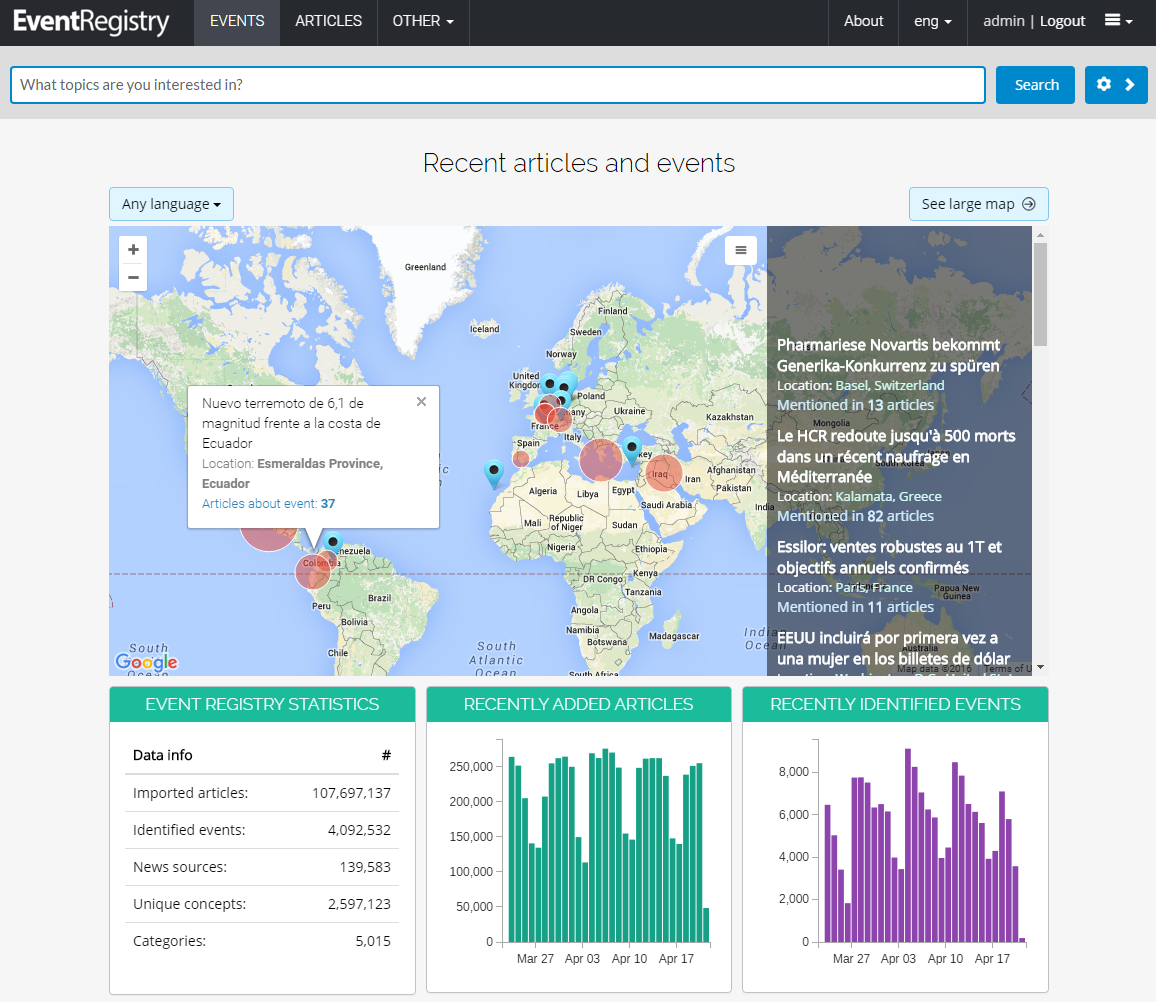I'm looking for the materials of major newspapers, such as The New York Times, Washington Post, and The Economist. A random sample of their articles or headlines would suffice, but each newspaper has complications.
The New York Times has an article search API that gives access to the newspaper's archives. There's a Python wrapper for it. The NYT allow frequent queries ( > 5,000 calls per day) after contacting them (non-commercial use only).
The Guardian grants free API access to 1.7M articles.
Some newspapers allow crawling.
Naturally, paid services search across newspapers and may do some export. See LexisNexis and Archives.gov.
Is there an open academic dataset of the newspaper content?
